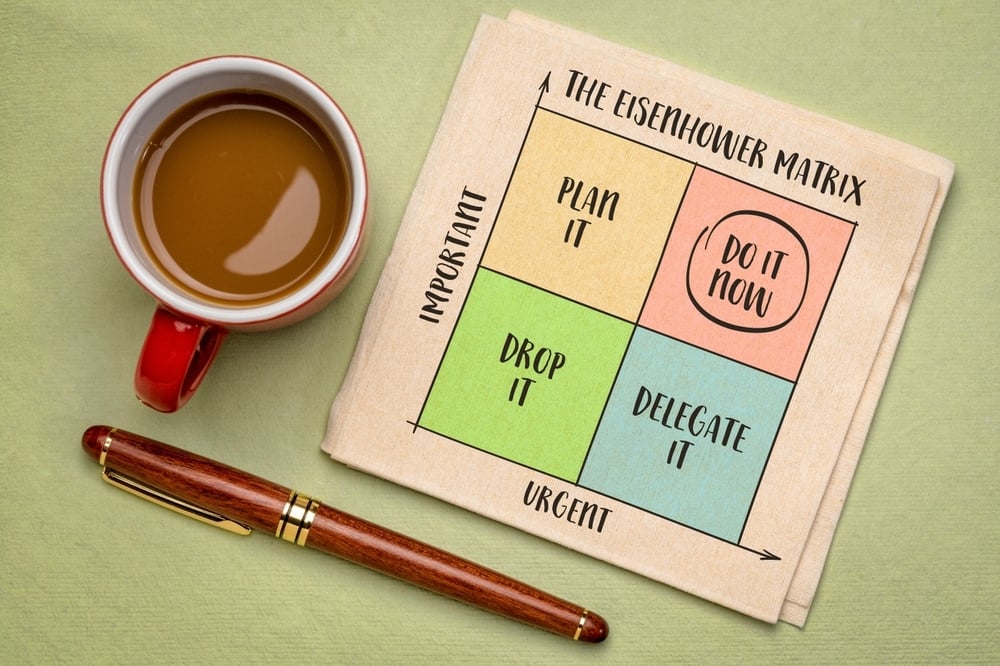
How leaders can fight Zoom-fatigue
by Tom Morton
Listen to Audio Version:
The first anniversary of lockdown is a good time to assess the impact of remote working (and of the all-conquering Zoom**) – not on your business, but on you personally. This is a worthwhile exercise, not just in order to assess the past, but to decide how much remote working we should keep once the restrictions are removed.
(**other platforms are available ….)
Do we gain more (in terms of time and freedom – and money) from remote working than we lose from the lack of face-to-face interaction?
Surely at least we gain time? We-e-ell …. research from Bloomberg shows that the average working day in the UK has increased by more than 2.5 hours since lockdown….
And Zoom meetings (and video chat platforms) are so tiring – why should this be?
Research from Stanford University has identified four reasons –
The reasons video calls are tiring:
- Excessive amounts of close-up eye contact are highly intense.
In a normal face to face meeting, people will be variously looking at the speaker, taking notes, or looking elsewhere – but on Zoom calls everyone is looking at everyone, all the time. This is threatening to your Chimp (if you haven’t read The Chimp Paradox, you should) – and the Chimp also doesn’t like the fact that on Zoom calls other people’s faces can appear too large for comfort
- Seeing yourself (constantly, in real time) during Zoom meetings is fatiguing.
The boffins reckon that when you see a reflection of yourself, you are more critical of yourself – and a Zoom meeting is like carrying a mirror around all the time.
- Zoom meetings dramatically reduce our normal mobility.
On a phone call (or a “walking meeting” – highly recommended) you can move around (and latest research indicates that this makes people perform better cognitively) – on a Zoom call you can’t – though a good webcam and wireless headphones can help (I use Beats Flex).
- The “cognitive load” is much higher.
In face-to-face interaction we pick up a lot of information from non-verbal communication, as well as from the other senses (including the “sixth sense”) – we have to work a lot harder on Zoom to get the same information.
What is the solution?
Jacquelyn Gernaey (who runs TAB in Suffolk County – the one in New York, not East Anglia), has some great advice for running Zoom meetings –
- Set a start and finish time – and stick to it
- Circulate an Agenda in advance
- Distribute any discussion papers in advance – and refuse to allow people to table these at the meeting
- Restrict all meetings, if possible, to half an hour (now there’s a challenge!)
- Have a “virtual talking stick” – you’re only allowed to talk when holding the stick (but you must pass it on when you’ve finished – or when the meeting chairman requires it!)
Citibank’s CEO, Jane Fraser, says “we are all feeling the weariness” – and is introducing “Zoom-free Fridays” (and maybe it’s not a coincidence that someone at the bank recently sent nearly $1billion to the wrong account by mistake) (not mine, unfortunately).
And finally – make sure you have a clear dividing line between work and non-work – and get plenty of sleep – and book some holidays!
Related articles

Alternative perspectives webinar addresses recruitment and retention
A write up of our recent Alternative Perspectives webinar which focused on recruitment and retention, including 7 top tips on tackling this area right now.
.png)
New business supports local SMEs
Discover how TAB is supporting SMEs in South Hertfordshire through unique peer advisory boards and coaching led by seasoned entrepreneur Andrew Butchart.

Why don’t I do what I know I should do?
Ed Reid, Managing Director of TAB (UK), discusses a very well-searched question and how it relates to business owners: why don't I do what I know I should?





